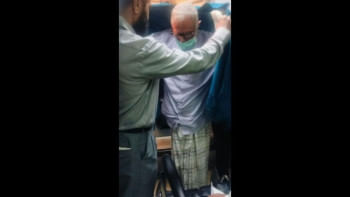Appropriate legal mechanism to protect trade secrets required

Trade secrets are a part of a company's Intellectual Property (IP). The Agreement on Trade-Related Aspects of Intellectual Property Rights (TRIPS Agreement) is the first multilateral agreement on trade secrets that requires trade secrets known as undisclosed information to be protected from unfair practices. According to Article 39 of the TRIPS Agreement, both natural and legal persons lawfully in control of such information shall have the right to prevent it from being disclosed to, acquired by, or used by others without their consent in a manner contrary to honest commercial practices.
The unauthorised acquisition, use or disclosure of such information in a manner contrary to honest commercial practices by persons other than the holder is regarded as an unfair practice. However, a trade secret owner cannot stop others from using the same technical or commercial information, if they acquired or developed such information independently by themselves through their own R&D, reverse engineering or marketing analysis, etc.
Though trade secrets as a species of IP rights have been in the shadows for many years but in the recent years, they are gaining traction as effective means to protect certain intellectual assets around the world. The TRIPS Agreement urges member states to ensure effective protection of trade secrets against unfair competition and practices.
In connection with this requirement, the US Government has enacted the Defend Trade Secrets Act, 2016 which allows an owner of a trade secret to sue in federal court when its trade secrets have been misappropriated. In the case of Henry Schein, Inc. v Cook (2016), the United States District Court for the Northern District of California granted plaintiff motion for a Temporary Restraining Order to enjoin defendant from accessing and disclosing any of its confidential data or accepting business from its customers.
However, in Bangladesh, trade secrets have not been recognised as forming part of IP rights yet and no agencies have been established like the Department of Patent, Design and Trademarks (DPDT) and Copyright Office to administer complaint as to trade secret violation. There is no law or policy which directly deals with protection of trade secrets in Bangladesh.
The legal protection of trade secrets exists but is scattered. For example, according to the section 49 of the Patent and Designs Act, 1911, one can afford to prevent disclosures of information about industrial designs while it is disclosed in bad faith. But this section is not applicable in case of all trade secrets.
In accordance with section 73 of the Contract Act, 1872 parties can claim compensation for breaches of contractual obligations if they enter into Non-Disclosure Agreements to protect their confidential information. To prosecute under this section, there must be an agreement between the parties. In absence of such agreement between the parties, if any third party gets unauthorised access to trade secrets, no one can claim remedy under this section.
Penal action may be brought under section 406 of the Penal Code, 1860 for the offence of criminal breach of trust. For convicting an accused person on a charge of criminal breach of trust, the complainant has to prove that the accused was entrusted with any property or dominion of it and subsequently he dishonestly misappropriated or converted it to his own use. Where the property is not given on trust or one gets access to the property or information without consent of the owner, this section will provide no remedy. Besides, there is a confusion as to whether the property under this section covers trade secrets or not.
Bangladesh has IP laws and policy in place as well as administrative and regulatory framework to administer these laws. The country has become member of the international conventions administered by the World Intellectual Property Organization (WIPO) including TRIPS Agreement. However, it needs accelerated actions to facilitate protection of IPRs including trade secrets for adapting with the information driven Fourth Industrial Revolution and to cope with the knowledge-based economy.
Innovative ideas and formulas can only flourish in an environment which facilitates fair competition. Therefore, strong legal and regulatory mechanism is required to ensure fair competition everywhere within the corresponding country. To meet the vision of transforming Bangladesh into a developed country by 2041, the government should recognise trade secrets as IP right and effective measures in protecting trade secrets of business entities so that they can gain a completive edge in the market and contribute in the economic development of the country. The government should undertake a comprehensive review of IP legal regime and enact appropriate IP laws that will ensure fair competition, encourage technology transfer, prohibit practices contrary to honest commercial acquisition and disclosure of trades secrets.
The writer is a corporate legal practitioner.

 For all latest news, follow The Daily Star's Google News channel.
For all latest news, follow The Daily Star's Google News channel. 



Comments